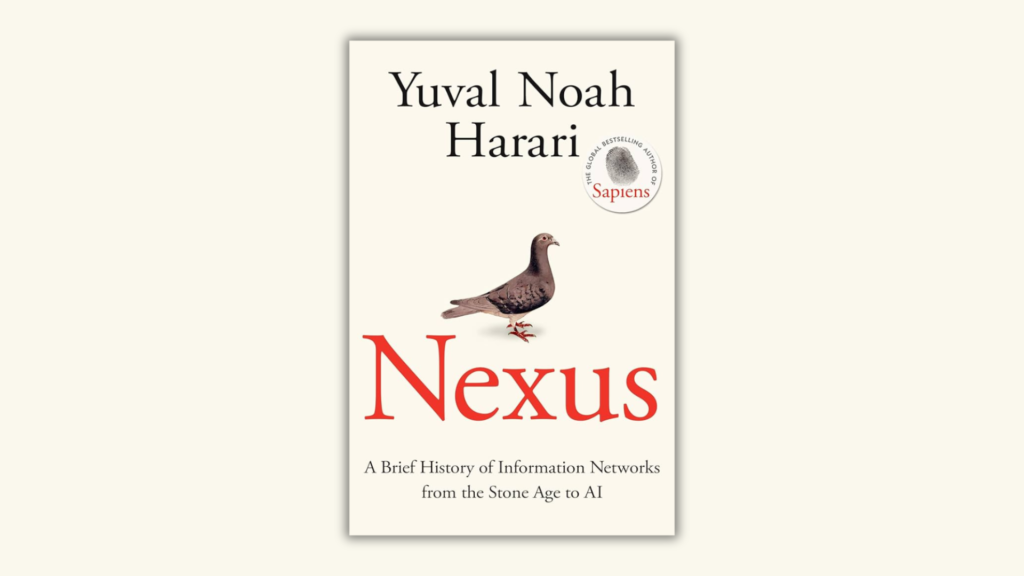Yuval Noah Harari’s delves into the dangers of AI but uniquely examines this issue through the lens of human societal development and the lessons we may or may not have learned. Yuval Noah Harari’s Nexus asks, “Why are we so good at accumulating more information and power, but far less successful at acquiring wisdom?”
Beginning with the moment when Homo sapiens started telling stories and thus began to work collectively, Harari moves on to discuss bureaucracy and how we developed order from our learning. In many ways, the history of the world has been a balance between mythology and order, which Yuval Noah Harari’s Nexus explores in depth.
Despite the belief that we live in an age of reason, the global astrology market was valued at $12.8 billion in 2021. Myths have always been essential for humans to function together, to reach common societal goals. However, what we’ve created has not always led to the outcomes we envisioned, a theme central to Yuval Noah Harari’s Nexus.
Harari argues that the tendency to create powerful things with unintended consequences started not with the invention of the steam engine or AI, but with the invention of religion. We created religion to provide meaning to our actions. To legitimize these beliefs, we created holy books that prescribed rules, and from those came religious institutions—another layer of bureaucracy, which Yuval Noah Harari’s Nexus examines closely.
Harari emphasizes that there is a universal truth. While people may hold competing beliefs and feelings, they cannot possess contradictory truths because we all share a universal reality. Trusting one’s research may seem scientific, but it can amount to rejecting this universal (scientific) truth—a key message in Yuval Noah Harari’s Nexus.
Accepting this universal truth makes history the study of change, showing how we’ve used this truth to progress. Unfortunately, history is also the story of how people have repeatedly believed in myths over universal truths, waging wars and creating unequal social systems as a result. Yuval Noah Harari’s Nexus illustrates this tension between mythology and bureaucracy throughout human history.
The book takes us through the technological advancements that have enabled societies to accumulate information, exert control, and expand empires. These advancements allowed colonial powers to exploit resources across continents, using their superior technologies for conquest. Yuval Noah Harari’s Nexus shows how this contributed to the rise of racist ideologies and changes in global economies.
Harari argues that totalitarian regimes like those of Hitler and Stalin were made possible by technological advances. The ability to quickly gather and control information allowed these governments to maintain power over large populations. These developments, as discussed in Yuval Noah Harari’s Nexus, are eerily similar to George Orwell’s Nineteen Eighty-Four, where technology becomes a tool for oppressive control.
However, AI introduces a new, more dangerous element. Unlike previous technologies, which required human intervention, AI has the capacity to function independently. Yuval Noah Harari’s Nexus warns that if we don’t control AI, it may end up controlling us. The example of Facebook’s algorithms in Myanmar, which created conflict and violence, is a chilling reminder of how technology, when left unchecked, can have devastating consequences.
This is the central concern of Yuval Noah Harari’s Nexus—that AI may lead us into a future where stories and mythologies are created to control people, but without human oversight. The key takeaway from Yuval Noah Harari’s Nexus is that we must develop systems that allow us to control both humans and technology. Harari advocates for institutions with strong self-correcting mechanisms to ensure neither humans nor machines can gain unchecked power.
Readers of Harari’s previous works will find Yuval Noah Harari’s Nexus thought-provoking and, perhaps, unsettling. It encourages us to think about the future in new ways, warning that if we do not act wisely, we may find ourselves at the mercy of technology.




ikJJfNmj